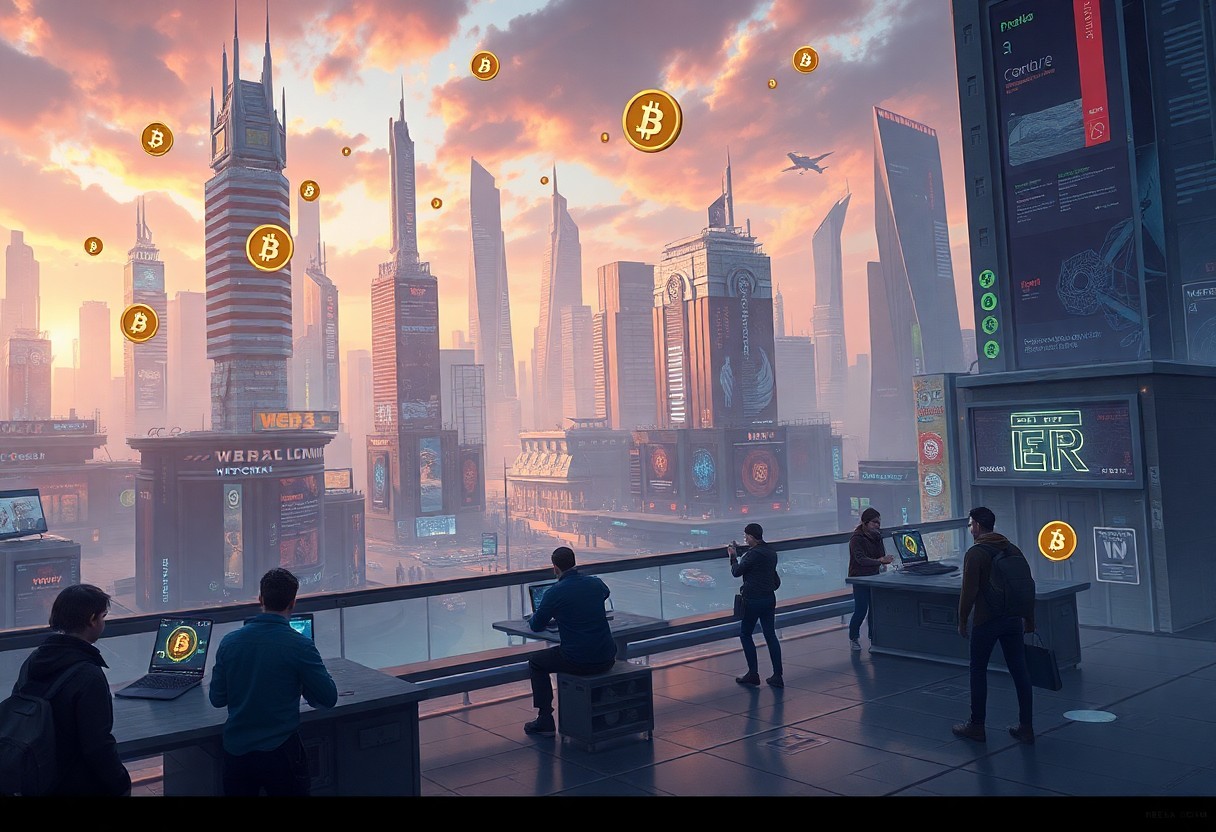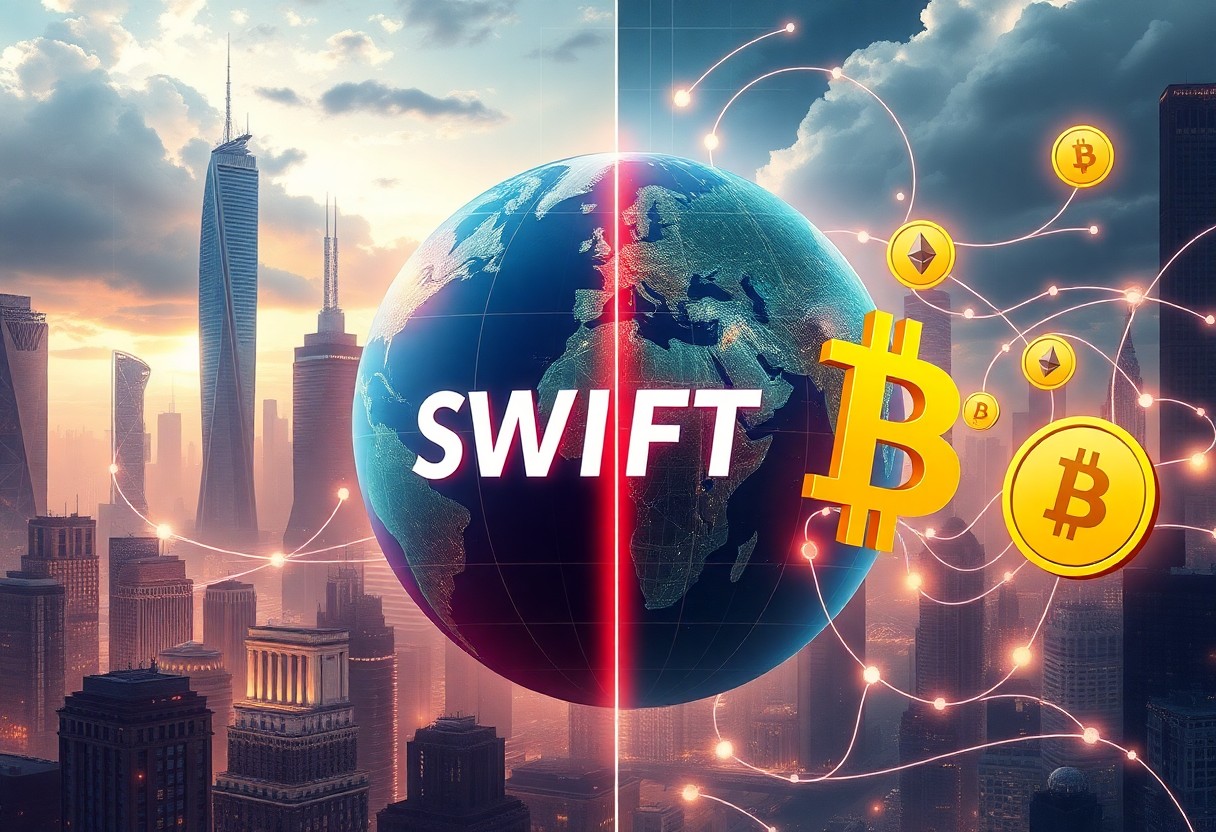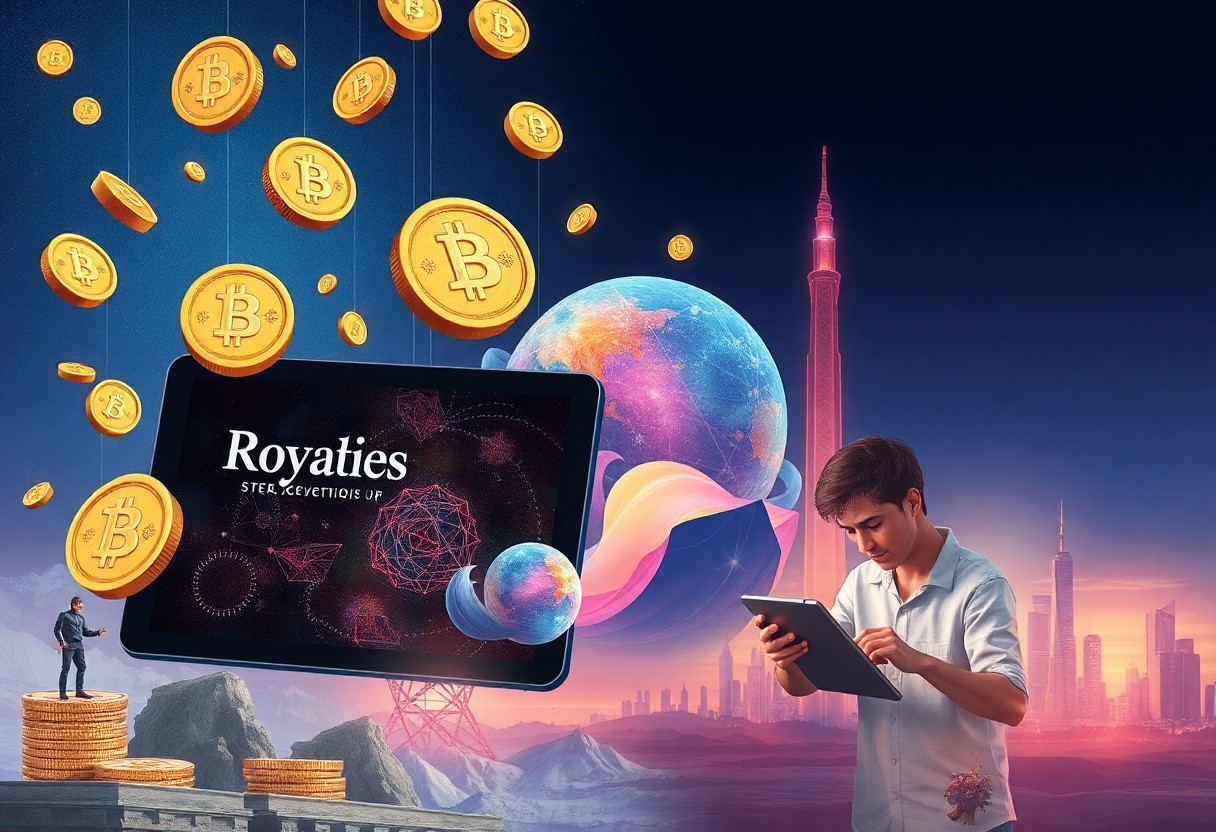Now Reading: Is Blockchain Gaming the Future of Web3 Adoption?
-
01
Is Blockchain Gaming the Future of Web3 Adoption?
Is Blockchain Gaming the Future of Web3 Adoption?

Web3 presents an exciting paradigm shift in how you interact with digital content and assets, particularly through the rise of blockchain gaming. As you explore this innovative landscape, you’ll discover how blockchain technology can offer true ownership of in-game assets, elevating your gaming experience and providing economic opportunities. However, with great promise come challenges, such as regulatory issues and environmental concerns. Understanding the implications of blockchain gaming on Web3 will be necessary for you to navigate the future of digital interactions and investments effectively.
Key Takeaways:
- Decentralization fosters player ownership: Blockchain technology empowers gamers by ensuring true ownership of in-game assets, which can lead to a stronger sense of community and player engagement.
- Monetization opportunities for creators: Game developers can leverage blockchain to create diverse revenue streams through NFTs and token economies, enhancing the financial viability of gaming projects.
- Interoperability across platforms: Blockchain gaming promotes interoperability, allowing players to transfer assets between games, resulting in richer gaming experiences.
- Transparency and trust are enhanced: Blockchain provides a transparent record of all transactions, building trust between players, developers, and publishers.
- Mainstream adoption hinges on user experience: For blockchain gaming to achieve widespread adoption, the user experience must rival traditional gaming, making it accessible and appealing to all gamers.
Understanding Blockchain Technology
Before plunging into the world of blockchain gaming, it’s crucial to grasp the underlying technology that powers it. Blockchain is a decentralized digital ledger that securely records transactions across multiple computers, ensuring transparency and immutability. For an in-depth look at how blockchain impacts gaming, check out Web3 Gaming: Taking Stock and Looking to the Future.
What is Blockchain?
For those unfamiliar, blockchain is a system of recording information in a way that makes it nearly impossible to change or hack the system. It consists of blocks that contain data, time stamps, and cryptographic hashes that connect each block to the previous one, forming a secure chain.
How Blockchain Works in Gaming
At its core, blockchain enhances gaming experiences by enabling players to own, trade, and monetize in-game assets securely. This technology allows for true ownership of items, as they’re stored on the blockchain rather than in centralized servers.
Indeed, blockchain introduces significant changes to gaming by allowing you to have complete control over your digital assets. This means that you can securely buy, sell, or trade in-game items as non-fungible tokens (NFTs), enhancing your gaming experience. Moreover, blockchain maintains transparency in game economies, ensuring fair play and preventing fraudulent activities. This also fosters a vibrant community, as you can connect with other players through a shared decentralized platform, enhancing your overall gaming journey.
The Evolution of Gaming
You’ve witnessed how gaming has transformed from simple pixelated graphics to immersive virtual worlds. As technology advanced, gaming evolved into a multi-billion dollar industry, relying heavily on central servers and proprietary systems. Today, a new wave of innovation, driven by blockchain technology, is reshaping the gaming landscape, offering players unprecedented ownership and control over their assets. This shift could redefine not just how you play games but enhance your overall gaming experience.
Traditional vs. Blockchain Gaming
One of the most significant differences between traditional and blockchain gaming is the concept of ownership. In traditional gaming, your in-game assets are often tied to your account and controlled by the game developers. In contrast, blockchain gaming allows you to truly own your assets as NFTs, making them tradable and transferable. This paradigm shift empowers you to have a say in the gaming economy while enhancing the potential for real-world value from your virtual achievements.
Key Innovations in Blockchain Gaming
Before blockchain, the gaming industry was limited in its ability to innovate in terms of player ownership and monetization. Blockchain technology has introduced novel elements such as decentralized economies and immutable ledgers that enhance transparency. You can now participate in play-to-earn models, where your gameplay directly correlates to real-world financial rewards, creating numerous pathways for monetization.
And this change is profound. In addition to true ownership of in-game assets, blockchain gaming fosters a sense of community through user-driven economies and collaborative gameplay. Features such as interoperability allow assets to cross-game boundaries, enhancing their utility. Moreover, transparency from blockchain technology minimizes unfair practices and promotes trust between players and developers. These innovations not only redefine cultural perceptions of value in gaming but also pave the way for a more engaging interactive experience that places you at the center of the action.
Benefits of Blockchain Gaming
Not only do blockchain games offer immersive experiences, but they also redefine your relationship with in-game assets. By enabling an economy built on true ownership, players can capitalize on their gaming skills and investments, leading to richer, more rewarding experiences away from the traditional gaming model.
Ownership and Control of Assets
Across blockchain gaming, the concept of true ownership is revolutionized, allowing you to possess and trade unique in-game assets as NFTs. This empowers you to have tangible control over your digital items, transforming how you interact with the games you love.
Transparency and Security
To facilitate safe transactions and preserve your trust, blockchain gaming platforms ensure all actions are recorded on an immutable ledger. This level of transparency eradicates the fear of fraud while enhancing user confidence in the ecosystem.
Indeed, the transparency and security provided by blockchain technology is a game-changer for players like you. Every transaction is publicly available and verifiable, which minimizes the risk of cheating and enhances fairness in gameplay. Additionally, the decentralized nature of blockchain ensures your data is less prone to breaches, safeguarding your assets and personal information. You can easily trace the provenance of in-game items, assuring their authenticity while fostering a culture of trust within the gaming community.
Challenges Facing Blockchain Gaming
Once again, the promising landscape of blockchain gaming encounters various challenges that hinder its widespread adoption. Issues such as scalability, regulatory hurdles, and user experience concerns present significant barriers. These challenges must be addressed to ensure the technology can reach its full potential and attract a broader audience who are eager to engage with new gaming experiences.
Scalability Issues
Beside the technical limitations of current blockchain networks, scalability emerges as a prominent challenge for blockchain gaming. As player participation grows, the demand on the network increases, often leading to congestion and delayed transactions. If you intend to enjoy a seamless gaming experience, you must be aware that scaling solutions are crucial for accommodating large numbers of users without sacrificing performance.
Regulatory and Legal Considerations
Beside the technical aspects, there are significant regulatory and legal considerations surrounding blockchain gaming. You should be mindful of how laws regarding digital assets and gambling can impact gameplay, ownership, and transactions within games.
Regulatory frameworks surrounding blockchain gaming can vary greatly by region and can introduce complex challenges. Compliance with anti-money laundering (AML) and know your customer (KYC) regulations can complicate player onboarding processes and game mechanics. Furthermore, issues of intellectual property can arise regarding in-game assets that exist on the blockchain, which may expose you to legal risks. Positive developments may occur when regulatory bodies clarify their stances on digital assets, potentially fostering a safer environment for developers and players alike. As you navigate these legal landscapes, it’s vital to stay informed about changes that could affect your gaming experience.
Case Studies of Successful Blockchain Games
All the signs indicate that blockchain gaming is a prototype for the Web3 era. Numerous games have shown significant success in engaging players while leveraging blockchain technology. Here are some case studies you should consider:
- Axie Infinity: Over 2 million daily active users, with $4 billion in total transactions.
- Decentraland: Realm of virtual land with 2.8 million monthly visitors and $100 million in asset sales.
- The Sandbox: 1.6 million registered users, hosting over $300 million in virtual land sales.
- CryptoKitties: Generated $30 million in sales within the first week of launch.
Axie Infinity
By focusing on a play-to-earn model, Axie Infinity has redefined gaming. With over 2 million daily active users and $4 billion in total transactions, this game enables players to earn rewards while battling, breeding, and trading adorable creatures called Axies.
Decentraland
Beside Axie Infinity, Decentraland offers you a unique virtual experience. With 2.8 million monthly visitors and over $100 million in asset sales, this platform allows users to buy, sell, and create digital assets in a shared virtual world.
This immersive environment empowers you to create, explore, and trade virtual real estate and assets, making it an attractive option for gamers and investors alike. The buying and selling of digital land can yield significant returns, as some plots have sold for over $1 million. However, it’s necessary to understand the risks involved, including market volatility. Engaging in such a space means you have to consider both the potential rewards and challenges that come with owning virtual assets.
The Role of NFTs in Gaming
Unlike traditional gaming models, NFTs are revolutionizing how you engage with in-game assets, allowing you to truly own your digital items. These non-fungible tokens enable players to trade, sell, and showcase their assets across various games, fostering a vibrant economy within the gaming community. For more insights on this evolution, check out The Future of Web3 Gaming: Trends, Challenges, and ….
Digital Ownership and Value
About the increasing significance of digital ownership, players now have actual stakes in their games, transforming how you value your in-game achievements. With NFTs, your accomplishments become tradable assets, providing a new layer of significance and potential revenue, fundamentally altering the gaming landscape.
Environmental Concerns and Solutions
To address environmental implications, developers are exploring green technologies to reduce the carbon footprint associated with blockchain gaming. By adopting energy-efficient consensus mechanisms and utilizing layer-2 solutions, you can enjoy gaming in a more sustainable way.
Understanding the environmental impact of blockchain gaming is vital as traditional proof-of-work systems can be highly energy-intensive. However, many companies are committing to a more sustainable future by implementing eco-friendly practices, such as using renewable energy sources and developing proof-of-stake protocols. These innovations help to minimize ecological damage while ensuring that as a player, you can engage in your favorite activities without harming the planet.
Final Words
Taking this into account, you can see that blockchain gaming has the potential to significantly influence Web3 adoption. As you explore this evolving landscape, it’s clear that the integration of decentralized technologies within gaming can reshape user experiences, ownership, and economic models. If you want to examine deeper into this topic, consider reviewing The Future of Web3 Gaming, which provides valuable insights into how this trend could redefine the digital space you engage with. Embrace the shift and prepare to navigate this exciting frontier.
FAQ
Q: What is blockchain gaming?
A: Blockchain gaming refers to video games that are built on blockchain technology. This means that in-game assets, such as characters, items, and virtual real estate, are represented as non-fungible tokens (NFTs) and can be owned, traded, or sold by players. This decentralization of ownership allows for a different gaming experience, where players have true control over their assets, potentially leading to new economic models within games.
Q: How does blockchain gaming contribute to the adoption of Web3?
A: Blockchain gaming plays a significant role in the adoption of Web3 by demonstrating the practical applications of decentralized technologies. By allowing players to own and trade their assets, blockchain games introduce users to the concept of ownership and value in digital spaces. This can encourage players to engage with other Web3 applications, such as decentralized finance (DeFi) and social platforms, helping to drive broader usage of Web3 technologies.
Q: What are the advantages of blockchain gaming compared to traditional gaming?
A: One major advantage of blockchain gaming is the element of true ownership. Players can buy, sell, or trade their assets freely, often leading to new revenue opportunities. Additionally, blockchain games typically integrate transparent mechanics, such as provably fair gaming, where players can verify fairness in outcomes. This contrasts with traditional gaming, where developers usually retain control over in-game assets, leading to restrictions on player ownership and trade.
Q: Are there any potential downsides to blockchain gaming?
A: Yes, there are potential downsides to blockchain gaming. Issues such as scalability may arise, affecting transaction speeds and costs, particularly during peak usage times. Additionally, there are concerns about environmental sustainability due to energy-intensive blockchain networks. Players may also face challenges related to security risks or scams, as the landscape is still evolving. Transparency in game mechanics and responsible development practices are crucial to address these concerns.
Q: Will blockchain gaming completely replace traditional gaming?
A: While blockchain gaming is set to grow and expand, it is unlikely to completely replace traditional gaming. Many gamers enjoy the experiences that traditional games provide, including rich narratives and graphics that may not yet be achievable in blockchain-based games. Instead, it is more probable that both gaming styles will coexist, with some players preferring the unique features of blockchain gaming and others continuing to enjoy conventional gaming offerings.
























